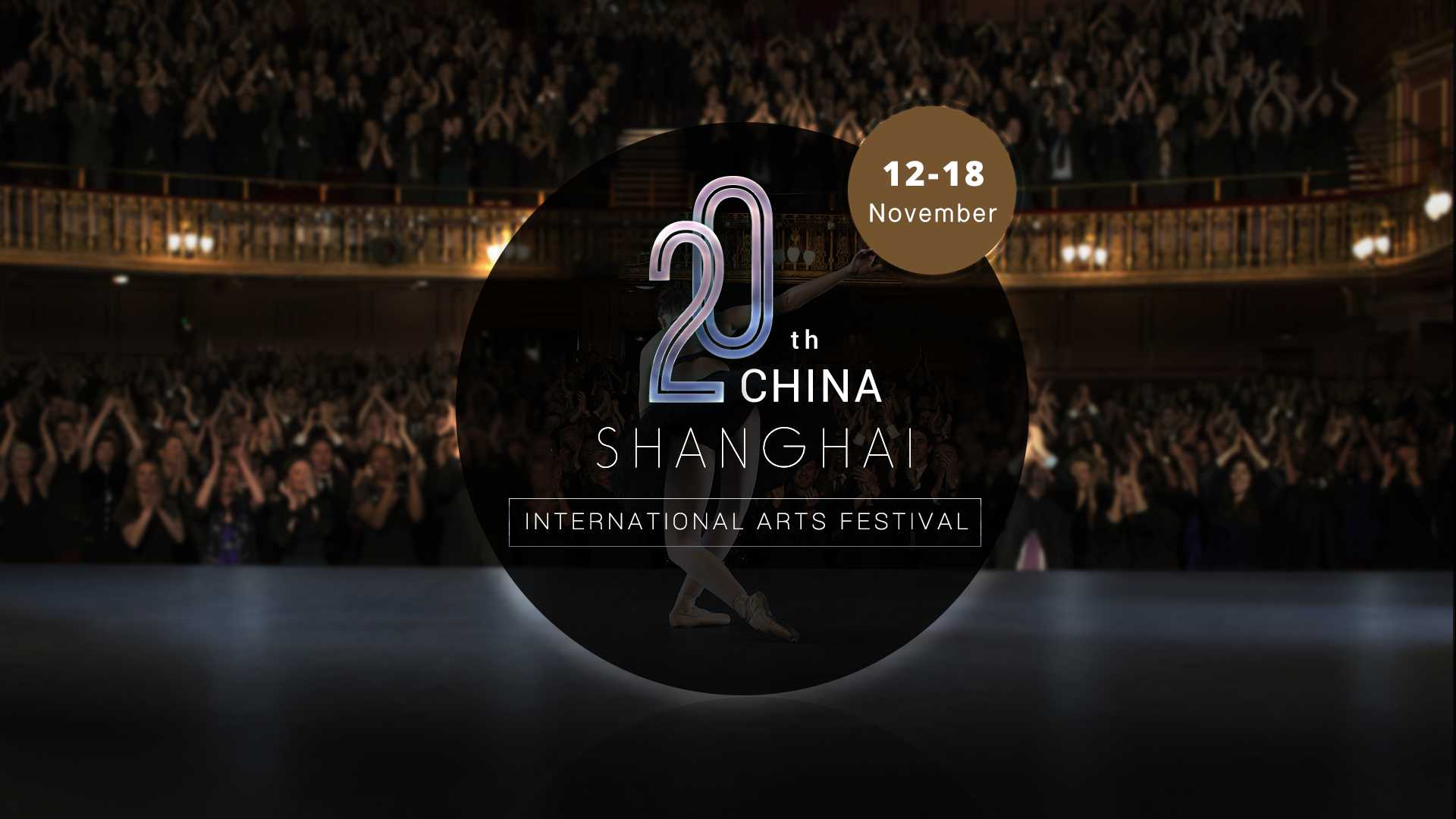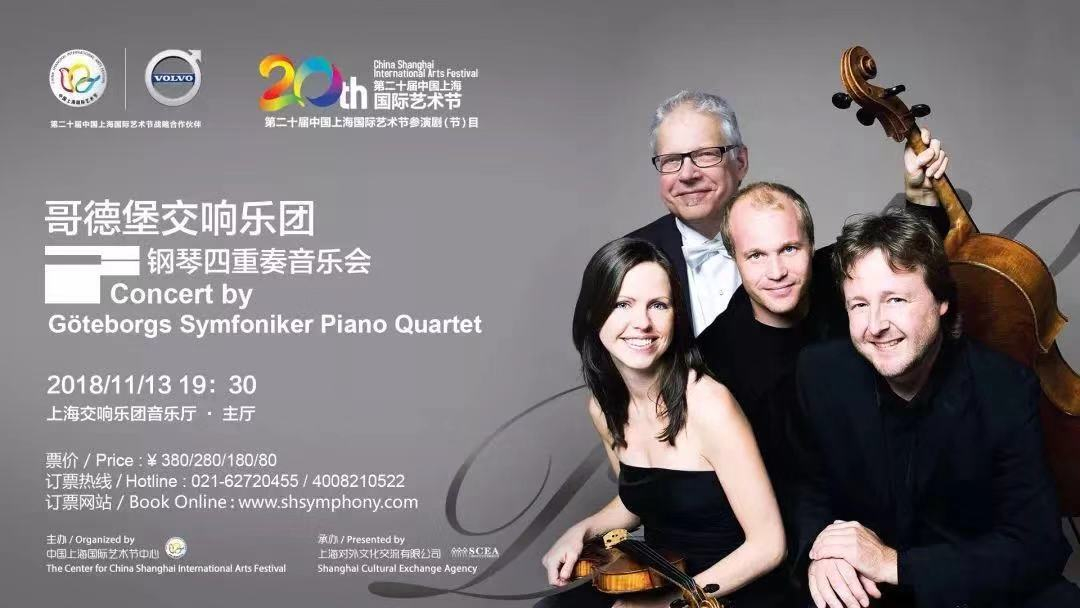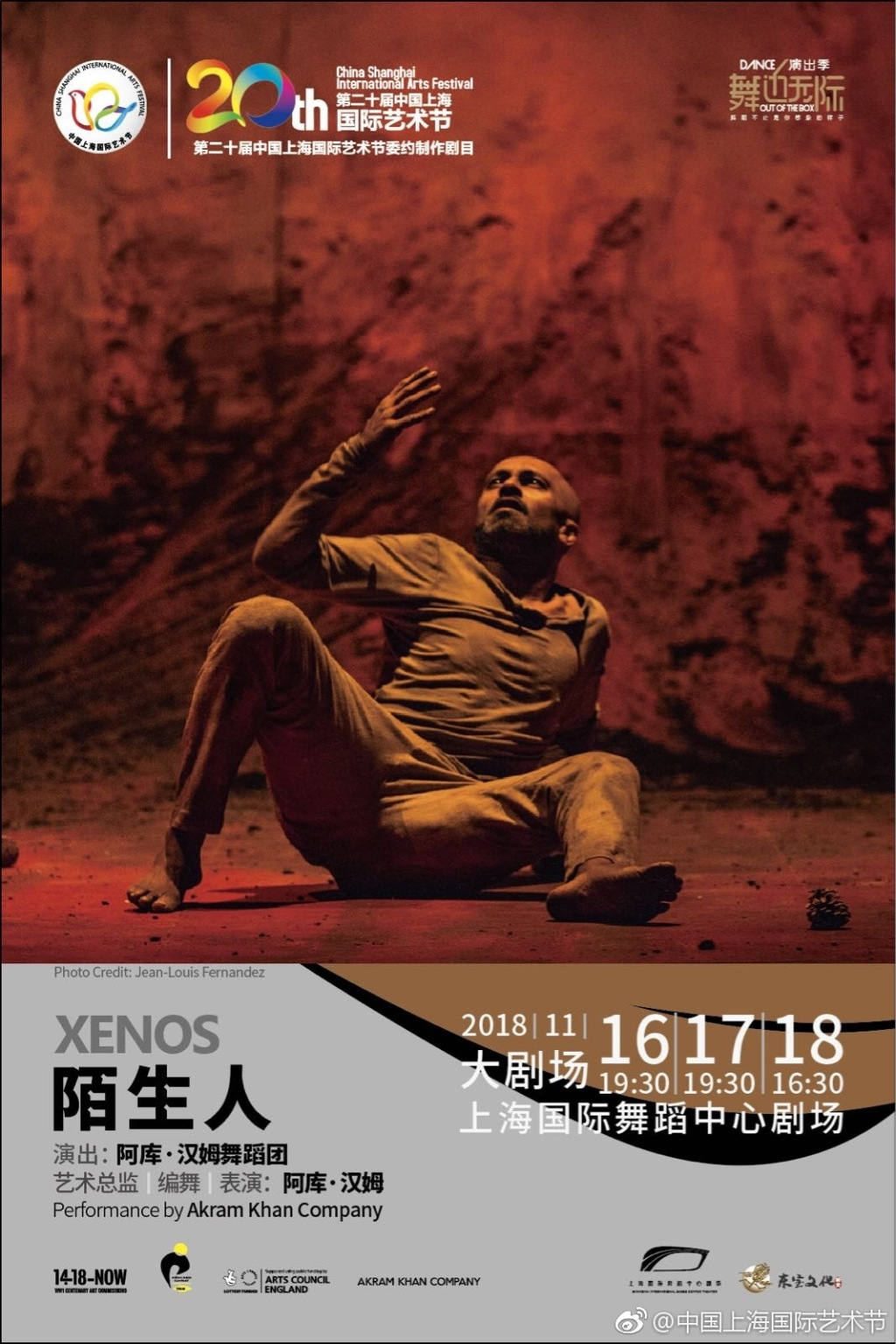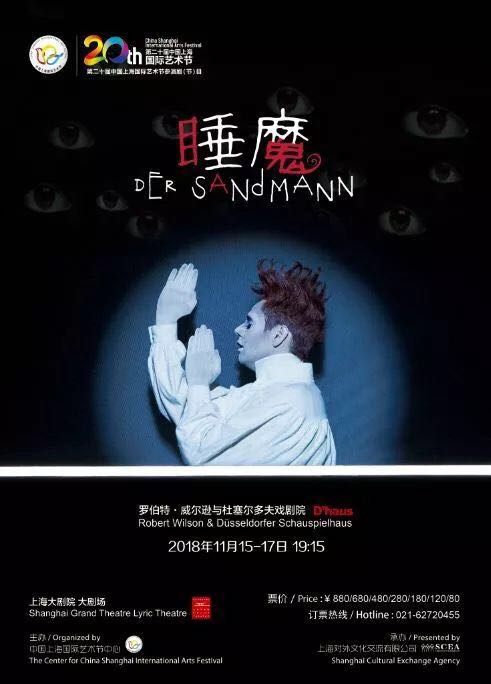
Culture
21:40, 12-Nov-2018
Highlights of Shanghai Int'l Arts Festival: November 12-18
Updated
21:21, 15-Nov-2018
By Wu Yan

There are only two weeks to go before the close of this year’s China Shanghai International Arts Festival (CSIAF). Artists from over 30 countries and regions are taking part in the festival.
Last week, Internet sensation Shanghai Rainbow Chamber Singers performed at the festival for the first time, the Norwegian National Ballet debuted playwright Henrik Ibsen's controversial but popular “Ghosts” in China; and the Palace Museum brought an adventure story of national treasures to the stage.
This week, dance legend Akram Khan will premiere the last performance of his career in Shanghai, and there are more exciting performances to follow.
Music

Poster advertising the concert by the Göteborgs Symfoniker Piano Quartet. /Photo via the official WeChat account of CSIAF
Poster advertising the concert by the Göteborgs Symfoniker Piano Quartet. /Photo via the official WeChat account of CSIAF
The Gothenburg Symphony Orchestra (Göteborgs Symfoniker), styled as the Swedish National Symphony Orchestra, will deliver a piano quartet concert on November 13. Founded in 1905, it aims to become one of the world's top orchestras by 2020 under the leadership of principal conductor Santtu Ma. In Shanghai, it will perform works of important Swedish composers, such as Wilhelm Stanhammar and Elfrida Andree.
As China's only professional multi-part symphony orchestra featuring Mongolian traditional musical instruments, the Inner Mongolia National Art Theatre National Music Orchestra takes horsehead fiddle as the main strings, komuz and yatga as the plucked music department, and bishguur and buree as the wind instruments. The Mongolian-style music will give you an exotic experience on November 18.
Dance
Modern dance master Akram Khan is hailed as “the first legend of the 21st-century dance circle”. Combining South Asian traditional dance Kathak with western contemporary dance, the Briton of Bengalese origin created a series of works of his own style, including the award-winning “Vertical Road.”

A poster for "Xenos" by Akram Khan. /Photo via the official Weibo account of CSIAF
A poster for "Xenos" by Akram Khan. /Photo via the official Weibo account of CSIAF
As he prepares to end his career as a dancer, Akram Khan picked Shanghai as the first stop in Asia to present his full-length solo performance “Xenos” from November 16 to 18. “Xenos,” meaning strangers, depicts a colonial soldier away from home participating in the First World War in Europe and feeling alienated. Akram Khan will use his skillful body to portray the bombarded soldier's dream, paying tribute to non-white stranger soldiers who lost their lives in war.
And on November 16 and 17, “The Light of Heart” by the National Ballet of China tells of the romance between a musician who studies overseas and a painter and Dunhuang frescoes protector, and how they contribute to the protection of cultural relics.
Drama
The Shanghai Dramatic Arts Center has rolled out a series of works that newly interpret classic dramas both from home and abroad since 2013. “Electra”, written by one of the three ancient Greek tragedians Sophocles, is the center's latest one in the series. Presented on November 13 and 14, it retells how Electra and her brother sought revenge for their father by slaughtering their mother and her adulterer.

A poster for the drama "The Sandman." /Photo via the official WeChat account of CSIAF
A poster for the drama "The Sandman." /Photo via the official WeChat account of CSIAF
Honored as the “lighthouse of experimental drama,” American dramatist Robert Wilson is committed to the development of the post-modern performing art. The drama “The Sandman,” adapted from the short story of the same name by E.T.A Hoffmann, one of the masters of German Romanticism and Gothic horror tales, is the latest work of Robert Wilson cooperating with British dramatic rock singer and songwriter Anna Calvi.
The drama's director and stage design, Robert Wilson, applies geometric stage scenes and unique clothing to create a fairytale-like visual experience. And to adapt to plots and shape characters, different genres of music are used, including circus music and the waltz, which successfully directs the audience's emotions. The drama will be presented from November 15 to 17.
Traditional local art Pingtan, a storytelling and ballad singing in Suzhou dialect, also wins attention. A concert of Pingtan pieces will be staged every day throughout this week, including “Jiang Yuequan, a Biography,” which commemorates the centennial birth of Pingtan master Jiang Yuequan, and “Poetic Souls and Lyrical Mind,” in which Chinese literary works and classic poems of Tang dynasty and Song dynasty are given music tones to be sung out.

SITEMAP
Copyright © 2018 CGTN. Beijing ICP prepared NO.16065310-3
Copyright © 2018 CGTN. Beijing ICP prepared NO.16065310-3